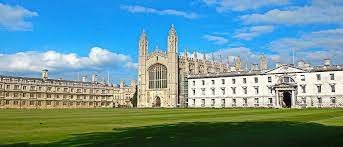Thailand is a top destination for international students seeking a high-quality and affordable education. With a wide range of universities and programs to choose from, students can find the perfect fit for their needs and budget.
The cost of living in Thailand is also quite reasonable, making it a great option for those on a tight budget. So, if you’re looking for a top-notch education at an affordable price, Thailand should be at the top of your list. Read on to learn more about the many benefits of pursuing a master’s degree in Thailand.
Requirement For Master’s Degree In Thailand
To embark on the journey of pursuing a master’s degree in Thailand, prospective students must navigate through a series of admission requirements. These prerequisites not only ensure that candidates are prepared for the academic rigor of their chosen program but also align with the educational standards set by Thai universities. Below is a comprehensive list of common requirements:
- Bachelor’s Degree: Applicants must hold a bachelor’s degree or its equivalent from an accredited institution. The degree should be relevant to the master’s program they intend to pursue.
- Transcripts: Official transcripts from all post-secondary institutions attended are required. These documents should detail the courses taken and the grades received.
- Proof of English Proficiency: Since many master’s programs are offered in English, non-native English speakers must demonstrate their language proficiency. Accepted tests typically include TOEFL, IELTS, or equivalent examinations. Minimum score requirements vary by university and program.
- Letters of Recommendation: Most universities require two to three letters of recommendation from individuals who can attest to the applicant’s academic and/or professional capabilities. These could be from former professors, employers, or professionals in the field.
- Statement of Purpose: A well-crafted statement of purpose that outlines the applicant’s academic interests, professional goals, and reasons for choosing the specific program and university in Thailand.
Meeting these requirements is the first step towards pursuing a master’s degree in Thailand. Applicants are encouraged to check with their chosen university for any additional or program-specific requirements.
Read Also: Cryptocurrency Scholarship Funds: How to win a Cryptocurrency PhD Scholarship
Cheap Schools and Universities In Thailand for Master’s Degrees and Their School Fees
Below are Cheap Schools and Universities In Thailand for master’s Degrees and Their School Fees
1) Chulalongkorn University
Nestled in the vibrant heart of Bangkok, Chulalongkorn University stands as a beacon of academic excellence and tradition, holding the distinction of being one of the oldest universities in Thailand. The institution is renowned for its comprehensive selection of master’s degree programs conducted in English, catering to a diverse array of interests such as Business Administration, Engineering, and Arts. With a commitment to fostering a global perspective among its students, Chulalongkorn University has established itself as a coveted destination for international learners seeking quality education at an affordable price.
The tuition fees for international students embarking on a master’s journey here are notably reasonable, ranging from 75,000 to 150,000 THB per semester. This cost structure is designed to make the university’s esteemed programs accessible while ensuring students receive an education that is both world-class and economically viable. The campus, with its strategic location in Bangkok, offers an immersive cultural experience, blending academic rigor with the dynamism of city life, thus providing students with a holistic educational journey.
2) Mahidol University
Mahidol University distinguishes itself as a premier institution, primarily celebrated for its contributions to research and advancements in health sciences. This university, however, is not limited to these areas, boasting robust offerings in Social Sciences, Engineering, and Information Technology as well. Located in the heart of Bangkok, it offers a dynamic campus environment, allowing students to engage with the city’s rich cultural tapestry and bustling life.
The tuition fees at Mahidol University represent a commitment to providing access to quality education at a reasonable cost. For international students, the financial investment required spans from 80,000 to 200,000 THB for each academic year, depending on the specific program chosen. This pricing strategy positions Mahidol University as an attractive option for those seeking a blend of academic rigor and practical affordability in their pursuit of a master’s degree. Beyond the classroom, students at Mahidol have the opportunity to partake in a variety of extracurricular activities and research initiatives, further enriching their educational experience in Thailand.
3) Chiang Mai University
Chiang Mai University (CMU) holds a special place in the landscape of Thai higher education, celebrated not only for its scenic campus nestled amid the lush mountains of Chiang Mai but also for its academic prowess. The university’s diverse range of master’s degree programs, including areas such as Agriculture, Humanities, Business, and Science, attract students from across the globe. CMU’s commitment to research and innovation, coupled with its dedication to societal development, makes it a standout choice for those looking to make a tangible impact through their studies.
For international students keen on pursuing their master’s degree at CMU, the financial aspect is an appealing feature. Tuition fees are competitively priced, with most programs costing between 50,000 to 120,000 THB per semester. This affordability does not compromise the quality of education or the breadth of opportunities available to students. Beyond academics, CMU offers a vibrant student life with numerous clubs, organizations, and events, allowing for a well-rounded educational experience.
4) Thammasat University
Thammasat University is a cornerstone of higher education in Thailand, with a rich history that dates back to its foundation in 1934. It has evolved into a comprehensive institution, offering a wide spectrum of master’s degree programs across various disciplines, including Political Science, Economics, Journalism, and many more.
Known for its progressive ethos and commitment to social justice, Thammasat provides a stimulating academic environment that encourages critical thinking and innovative research. For international students considering Thammasat for their master’s studies, the financial commitment is manageable, with tuition fees generally ranging from 90,000 to 150,000 THB per academic year.
5) King Mongkut’s University of Technology Thonburi (KMUTT)
King Mongkut’s University of Technology Thonburi (KMUTT) is renowned for its strong emphasis on engineering and technology, although it offers a wide range of master’s programs that extend into design, architecture, and information technology. Known for its innovative research and state-of-the-art facilities, KMUTT provides an environment where students are encouraged to push the boundaries of technology and creativity. Situated in Bangkok, KMUTT benefits from its urban location by maintaining strong connections with industry partners, offering students unparalleled opportunities for internships, research, and employment post-graduation.
For those considering KMUTT for their master’s studies, the financial investment required is competitively priced, making it an accessible choice for many. Tuition fees for international students vary by program but are generally in the range of 75,000 to 140,000 THB per semester. This cost-effective approach to tuition ensures that students not only receive an education that is innovative and forward-thinking but also one that is financially feasible.
FAQS
How much does it cost to get a master’s degree in Thailand?
The cost of getting a master’s degree in Thailand can vary depending on the university, program, and specific fees. However, on average, tuition fees for a master’s degree in Thailand range from around THB 30,000 (around $900) to THB 100,000 (around $3,000) per year. In addition to tuition fees, students should also budget for living expenses, such as food, housing, transportation, and other costs.
How much is tuition fees for international students in Thailand?
Tuition fees for international students in Thailand are typically higher than those for local students. On average, international students can expect to pay tuition fees ranging from THB 100,000 to THB 500,000 per year for master’s degree programs, depending on the university and program of study. Some universities may offer scholarships or financial aid to international students to help offset the cost of tuition.
Is Thailand cheap for study?
Thailand is known for its relatively low cost of living compared to many Western countries, making it an attractive destination for international students. In addition to affordable tuition fees, students can find reasonably priced accommodation, food, transportation, and entertainment options in Thailand. However, the overall cost of study may vary depending on individual lifestyle choices and preferences.
Is Thailand good for Masters?
Thailand offers a diverse range of master’s degree programs across various disciplines, including business, engineering, social sciences, humanities, and health sciences. Many universities in Thailand are recognized for their academic excellence, research opportunities, and international collaboration. Additionally, Thailand’s vibrant culture, friendly people, and picturesque landscapes make it an enriching and memorable destination for pursuing higher education.
How long is a master’s degree in Thailand?
The duration of a master’s degree program in Thailand typically ranges from one to two years, depending on the university and program of study. Most master’s degree programs require students to complete a specified number of credit hours, coursework, and a thesis or research project. Some programs may offer options for full-time or part-time study, allowing students to tailor their academic schedules to their needs and preferences.
Conclusion
In conclusion, Thailand is a great option for international students seeking a high-quality, affordable education. With a wide range of programs and universities to choose from, students can find the perfect fit for their needs and budget. In addition to the low cost of tuition and living expenses, Thailand also offers a vibrant culture and many opportunities for fun and adventure. Overall, Thailand is a great choice for students who are looking for a quality education at an affordable price. With its rich history and stunning natural beauty, Thailand is a truly unique place to call home.






